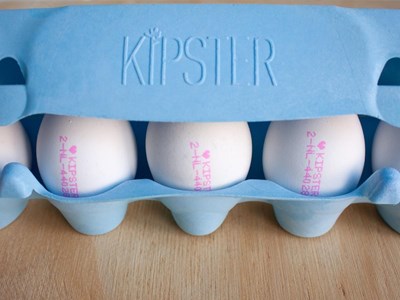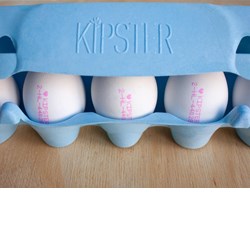Kipster contains many innovations in chicken production:
• the farm is designed around the instincts and needs of the chicken;
• 1,100 solar panels make the farm energy positive;
• fine dust emissions are kept to an absolute minimum, with new systems for the agricultural sector;
• the chickens are fed newly developed feed that is made from residual flows, which have a minimal impact on the environment and which do not compete with food for human consumption.
Kipster's eggs are exclusively for sale at Lidl in the Netherlands. Lidl is also the first supermarket in the Netherlands to sell the meat of the roosters. Where laying hens are born, the same number of roosters are born. It is customary to destroy these roosters immediately. That happens about forty million times a year in the Netherlands. Kipster and Lidl are the first to break this pattern. They raise the roosters, slaughter them at 17 weeks, and turn them into Dutch Haan burgers.


This is the most sustainable egg box there is, made from potato starch, cellulose fiber and water. The CO2 footprint of a the Kipster egg box is 90% smaller compared with a standard egg box.